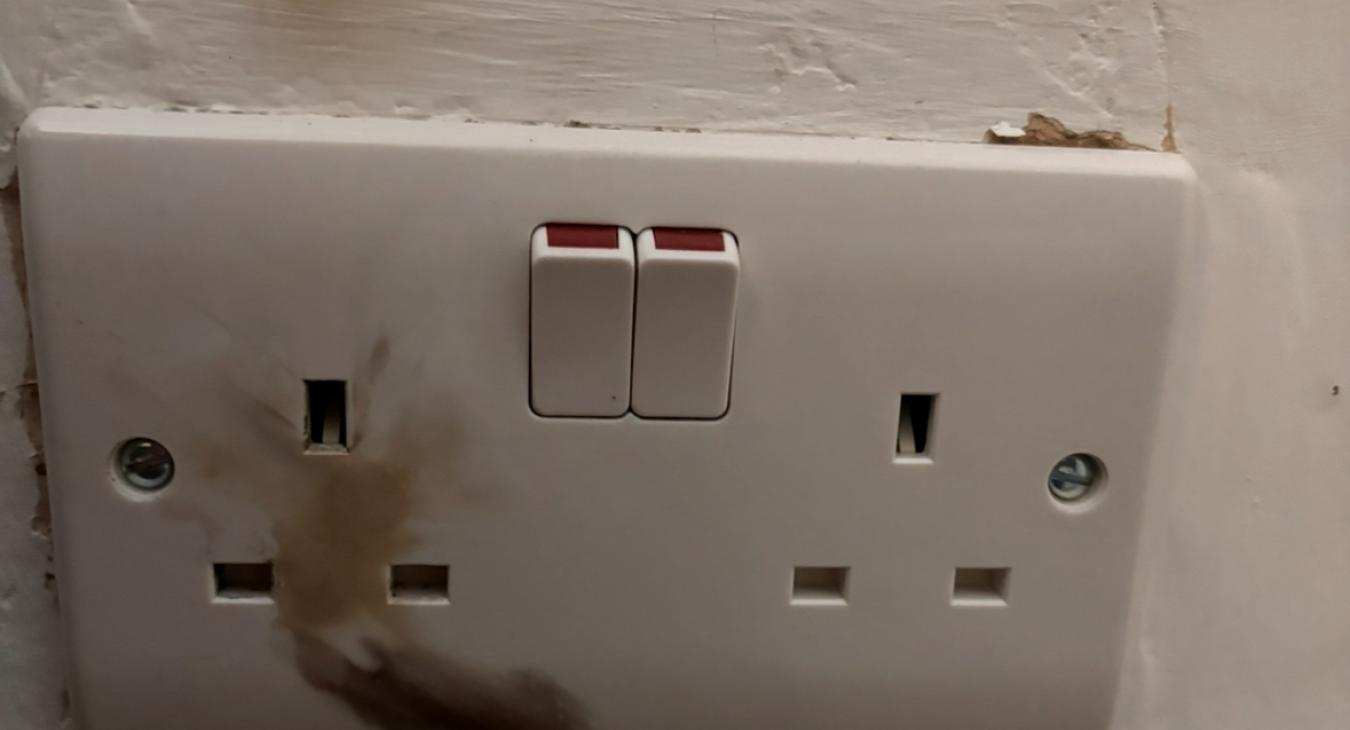Over heated socket
Stop Leaving the Cardboard on Your Plugs: Simple Fire Safety for Brighton & Hove Homes
You know that paper/cardboard sleeve or sticky label that comes on the plug of a new extension lead? It’s only there for transport and shop display. If it stays on while the plug’s in use, it can trap heat and it’s flammable. I see this all the time on call-outs across Brighton, Hove, Fiveways and Preston Park—easy mistake, easy fix.
Why it matters
Plugs get warm in normal use, especially with heaters, kettles, tumble dryers or multiple devices on an extension. Add a cardboard sleeve or paper label, and you’re wrapping a warm plug in fuel. Over time that can mean scorching, smells of hot plastic, or in the worst case a fire.
What to remove (before first use)
- The cardboard sleeve around the plug pins
- Any paper labels stuck across the face of the plug or trailing socket
- Plastic film over vents or rating labels on cable reels
Bin the packaging and check the plug and cable are undamaged before you power up.
Safer use of extension leads
- Don’t overload: UK 13A = roughly 3,000W max. Big appliances (heaters, dryers, kettles, irons) should go direct to a wall socket, not a multiway.
- Fully unwind cable reels for anything over a few hundred watts. A coiled reel acts like a heater.
- One high-load appliance per extension, no “daisy-chaining” (extension into extension).
- Keep plugs visible and ventilated—not buried behind sofas, curtains or piles of laundry.
- Right fuse, right job: most extensions are supplied with a 13A fused plug. If the load is lower (lamps/TV/router), a 5A or 3A fuse may be more appropriate for that extension.
- Look for UK safety marks: BS 1363 and UKCA on the plug and trailing socket. Avoid cheap no-name imports.
- Use RCD protection (built-in at the board or a plug-in RCD) for extra safety.
Signs you shouldn’t ignore
- Plug, pins or socket feels hot to the touch
- Brown marks or a scorched smell
- Buzzing/crackling from the socket
- Loose plug fit or damaged cable sheath
If you spot any of these, unplug immediately and get it checked.
The best long-term fix: add sockets where you need them
Extensions are handy, but if you’re relying on them every day, it’s time to look at adding a couple of permanent sockets. It’s neater, safer, and often cheaper than you think.
Need help?
I’m Aaron at ANG Electrical—friendly, tidy, and local to Brighton, Hove, Fiveways, Hollingdean, Preston Park and beyond. I can:
- Check your extensions and plugs for safety
- Add or relocate sockets to reduce extension use
- Upgrade your consumer unit with modern RCD/RCBO protection
Message me for a quick safety check or a free quote. Stay safe, and please—take the paper off those plugs!

